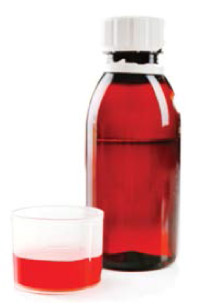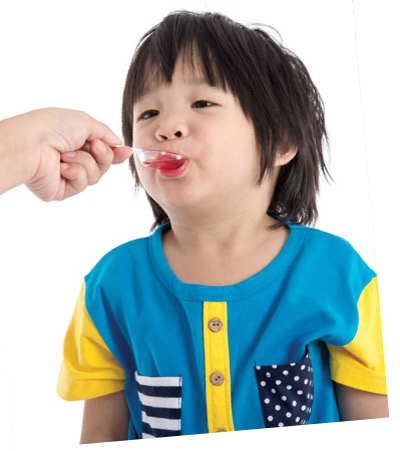Coughs and colds are pretty much a common illness. As parents, you will need to familiarise yourself with cough and cold management techniques. If you are taking care of him on your own, then you should also know whether or not a trip to his paediatrician is necessary.
Did you know?
The effectiveness of over-the-counter (OTC) cough syrups was studied in adults and not children. There is no clear indication that they react in the same way for children and there is only weak evidence that OTC cough syrups help adults. There are no home remedies or OTC cough syrups that will hasten your child’s recovery. Colds normally run their course in 7-10 days. While some OTC medicines may relieve the symptoms, their actual efficacy is highly questionable.
Always see your child’s paediatrician if he has a cough or cold, and give him the prescribed medication accordingly. There are also other ways to deal with cold symptoms which your child’s paediatrician can advise you on.
What’s inside
When it comes to OTC cough syrups, they typically contain a mixture of ingredients with one main active ingredient, namely:
- dextromethorphan or DM (found in cough suppressants)
- guaifenesin (found in cough expectorants)
- pseudoephedrine and phenylephrine (found in decongestants)
- brompheniramine, chlorpheniramine maleate, and diphenhydramine (found in certain antihistamines)
Knowing the active ingredients can help you avoid accidentally giving your child an overdose if he is on more than one type of medication.

What to watch out for
If you do have an older child and you opt to use OTC cough syrups, then always ensure that you follow the safety instructions on the label or the inside leaflet. However, you may want to talk to your child’s paediatrician first to get his take on whether your child is ready to use OTC cough syrups.
If you have checked, then keep in mind several points when using OTC cough syrups, namely:
- Dosage – never give a larger dose than is recommended
- Frequency – never shorten the time between doses
- Mixing with other medicines – never combine or mix with other prescription or OTC medications as your child may end up ingesting more of a particular ingredient than he should.
- Keep it out of reach – always ensure that your child is not able to access OTC cough syrups on his own, or any kind of medication for that matter.
Should you ignore any of these, you run the risk of endangering your child so make sure you keep track!
Danger signs
However, if your child is sick and exhibits the following danger signs, you should take him to see his paediatrician immediately:
- He is lethargic and doesn’t respond well.
- He complains that his chest feels tight or that it hurts.
- He starts wheezing or has difficulty breathing.
- He keeps tugging his ear or complains of ear ache.
- He does not urinate for more than eight hours.
- He has blood in his mucus or saliva.
If you have a very young child who is sick, take him to see his paediatrician immediately if you see the following signs:
- Dry diapers in a six to eight hour period, if he cries with no tears, has sunken eyes, or has dry lips.
- He is fussy and cannot be calmed by your usual methods (e.g. singing, rocking, or giving him a pacifier).
- He has a fever of 38°C or more and is three months old or younger.
- He has a fever for more than three days.
The best thing to do
Good old TLC (tender loving care) will normally work wonders. Any child who is sick will appreciate that extra TLC, and even if it doesn’t cure their cough it certainly will make them feel better. Of course, you should also ensure that he stays hydrated – stick to breastmilk for babies below 12 months. Older children should drink plenty of water, diluted juice, or broth. Take care of his scratchy throat too. If he has trouble eating his usual foods, give him soft foods such as puddings, chicken soup, porridge, etc.
If he suffers from nasal congestion, there are some ways to provide him with some relief. You can use saline nasal drops or sprays for young children or a bulb syringe to help clear baby’s nose. You can also use a cool-mist humidifier to add more humidity or moisture to the air. This helps ease breathing if he has dry, congested nasal passages. Just be sure to keep the humidifier clean and use it sparingly.
An educational contribution by Malaysian Paediatric Association.






Comments